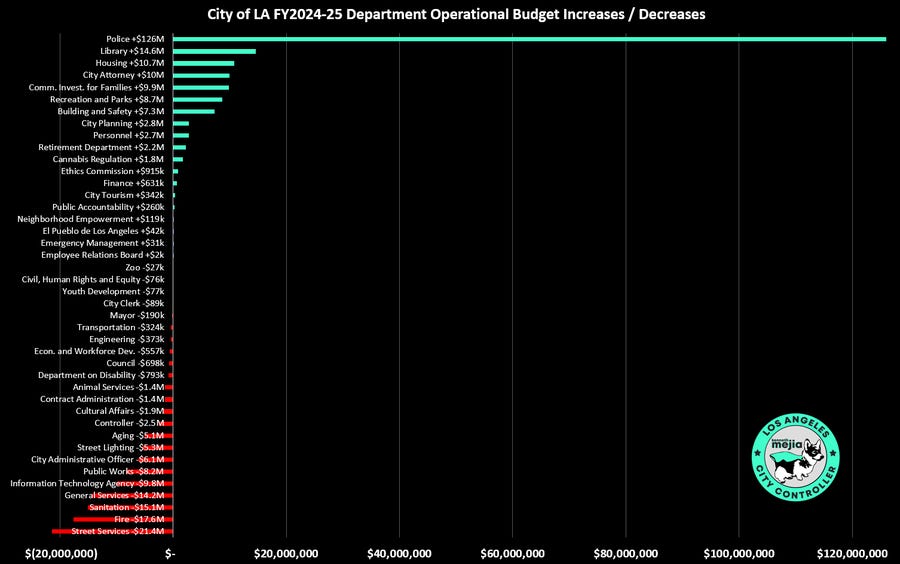How One Billionaire Family Bought Most of California's Water Supply
The Resnik's power over water in California and the devastating impact of it.
*The contents of this article are allegations with sources hyperlinked*
Water is every person’s right unless you live in a late-stage capitalist hellscape that gives the billionaire class unlimited power to build their empires.
The run down…
Meet the Resniks, the most prominent farmers in California; to put it into perspective, since 2007, they owned four San Francisco’s worth of farmland. If you’ve ever eaten the brands listed below, you've consumed Resnik’s products.


The Wonderful Company they own is worth at least $5 billion, but the Resnik couple pictured above is worth at least $8 billion. They started in the pistachio business in the late 1980s and then branched out to other products, such as almonds and pomegranates. As they grew their business, California also built its water infrastructure (water banks). California had initially built water banks to store water during droughts… or so they thought. The water banks were supposed to serve all Californians.
In 1994, state water officials, water infrastructure contractors, and agricultural landowners with water rights attended a secret meeting at a Monterey Bay, California resort. They rewrote California’s water laws without ANY input from voters, taxpayers, or legislators.
The original law prioritized urban areas over agriculture during droughts, but Monterey removed this, forcing cities to buy water from private companies instead. This means that in drought, Californians would have to buy water rather than being sent to them… without being bought.
The new agreement also relaxed rules on “paper water,” allowing more water to be promised than exists. The Kern Water Bank's ownership shifted from the state to private contractors, including Westside Mutual, a Wonderful Foods subsidiary whose employee Bill Phillimore is now chairman of the public organization that manages the Kern Water Bank.
And there you have it! Resniks owned about 60% of an important water source built and paid for in millions by taxpayers. They took the water supply and sold it back to the people as water, and they used it to grow the food they sell in the Wonderful brand.
The Resniks can buy vast amounts of water whenever they need more. They have a 57% stake in the public-private partnership that operates the water bank and its 32-square-mile recharge basin, which stores up to 500 billion gallons underground. In most of the counties that the Resniks own, this water is home to marginalized communities, usually made up of migrant farm workers or immigrants with little to no access to water.
How they paid off politicians…
Admittedly, I felt guilty when I joked that Senator Diane Feinstein’s “check engine” light came on after she looked terrible getting wheeled into Congress in a wheelchair, but after I learned how the Resniks bought her out, not so much.
The chair of the Energy and Water subcommittee herself, Feinstein was a close personal friend of the Resniks, regularly attending their holiday parties in Aspen and other things rich people do that you and I probably can’t imagine. Governor Gavin Newsom survived his recall fiasco with the Resniks as a top donor. They pay thousands of dollars to highly influential politicians to keep their greedy hoard of water to themselves.
They lobby for increased tensions with Iran to keep embargoes on Iranian pistachios (actually ridiculous), their crops kill important pollinators, they exploit their workers, and the list goes on and on.
Call to action…
BOYCOTT THE WONDERFUL COMPANY!!!! Here is the list of their products:
FIJI Water: America's top premium imported bottled water brand
POM Wonderful: America's top 100% pomegranate brand
Wonderful Pistachios: America's top tree nut and fastest-growing snack
Wonderful Halos: America's top mandarin orange
JUSTIN Wines: California's top Cabernet Sauvignon
Teleflora: The world's leading floral delivery service
Landmark Vineyards: A wine brand owned by The Wonderful Company
Lewis Cellars: A wine brand owned by The Wonderful Company
Protest with your dollars, don’t buy their product.
Fire hydrants went dry in LA…
By early Wednesday morning, all the water storage tanks in the Palisades area had gone dry. Admittedly, they had four times the expected demand for 15 hours straight, which lowered the water pressure. Before the fire, all 114 tanks supplying city water infrastructure were filled.
The hydrants in Palisades rely on three large water tanks, each holding around 1 million gallons. However, the trucks pushed and used so much water that they couldn’t fill the tanks fast enough.
This isn't a new issue. In November, the lack of water from hydrants hurt efforts to fight the Mountain Fire in Ventura County. Two water pumps became inactive, slowing the process of delivering water.
The pumps running out of water weren’t directly a water access issue; they were caused by poor infrastructure that desperately needs to be updated.
Where is LA’s tax money going?
Police, police, police. That’s where. LA's fire department is the second to last department with the least funding. How the hell did we get here?
The LAPD receives more than $120 million (excluding the extra money they passed in a bill in 2023 that gives the LAPD an additional $1 billion), while the fire department receives pennies (figuratively). We wonder why so many people are angry at Mayor Karen Bass.
In conclusion…
Resnik’s control over California’s water infrastructure highlights the stark inequalities created by a system prioritizing private profit over public good. Despite benefiting from taxpayer-funded resources, Resnik has turned water—an essential resource—into a commodity that it sells back to the people.
Their extensive political influence ensures the continuation of this system, with politicians like Senator Feinstein and Governor Newsom helping to protect their interests. Meanwhile, the state’s water supply, meant to serve everyone, is exploited to maintain the Resnik’s massive agricultural empire.
In a state facing severe droughts and water shortages, the wealthy hoarded vast amounts of water, leaving marginalized communities with little access to this vital resource. As infrastructure crumbles and priorities shift, it’s clear that California’s water crisis is as much about power and inequality as it is about the environment.




Excellent commentary!